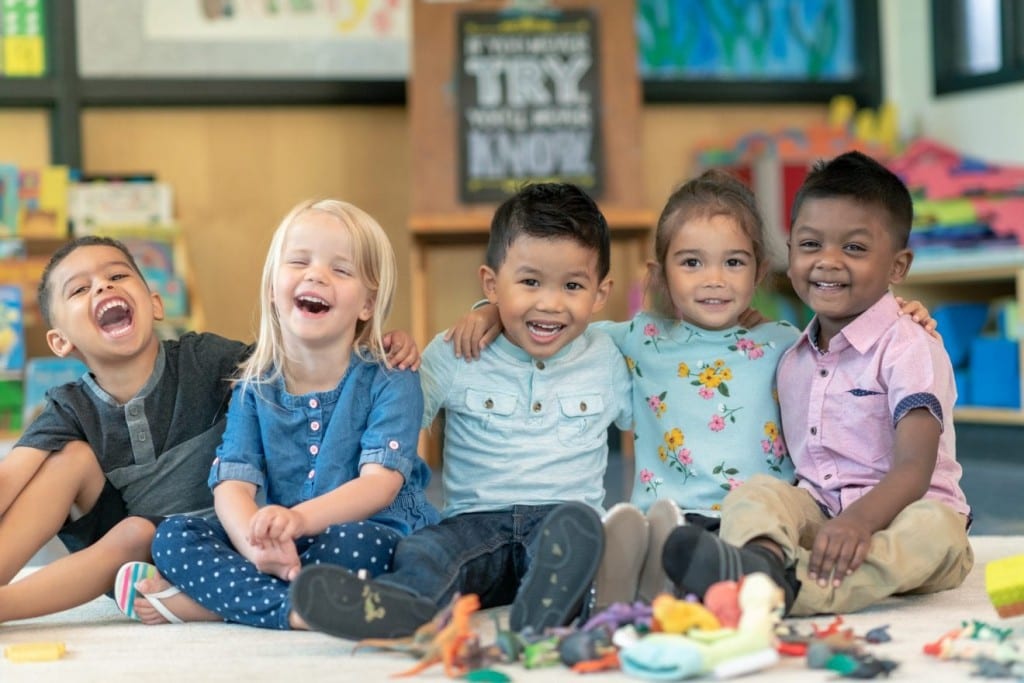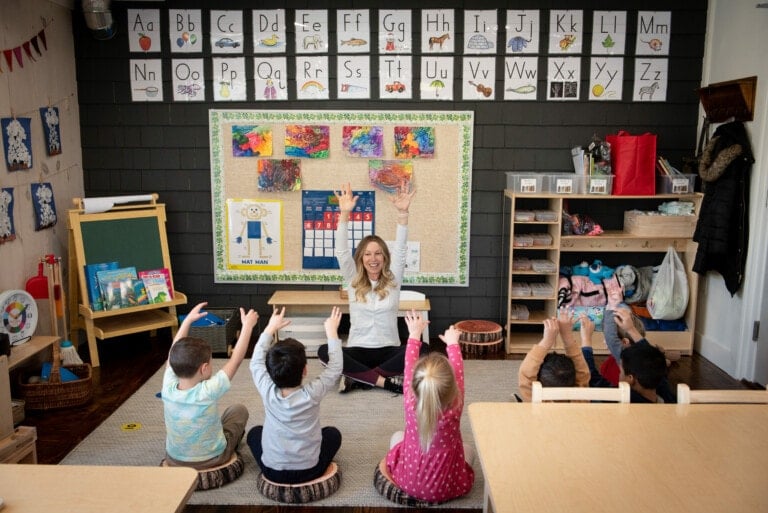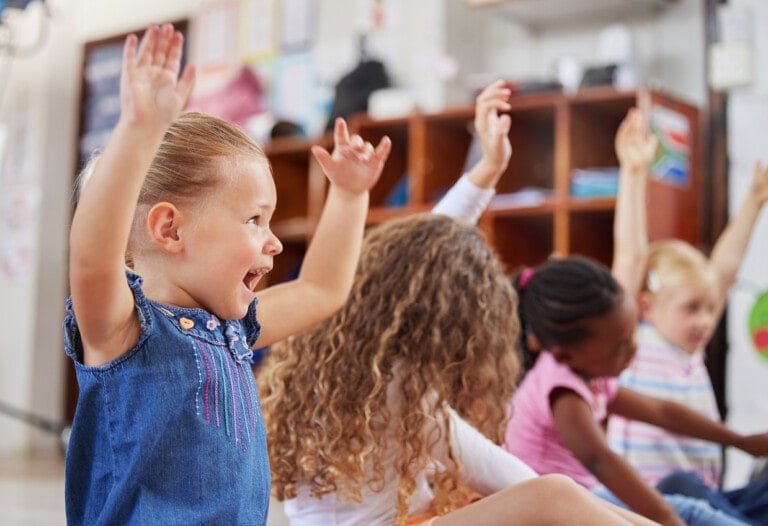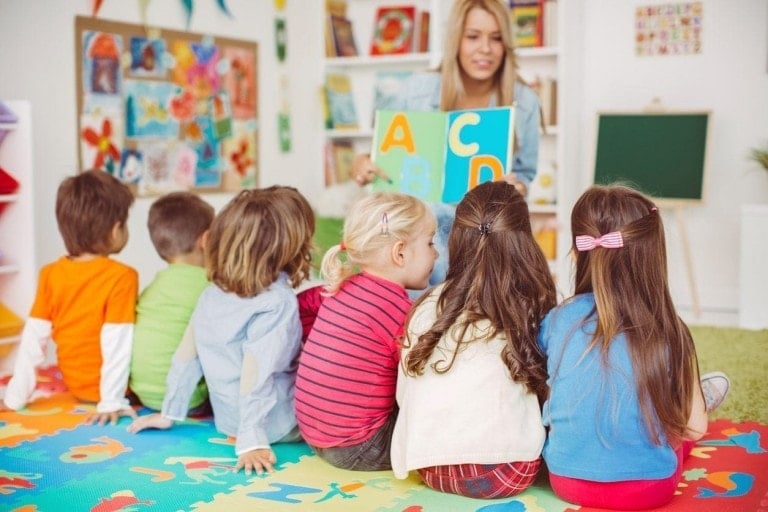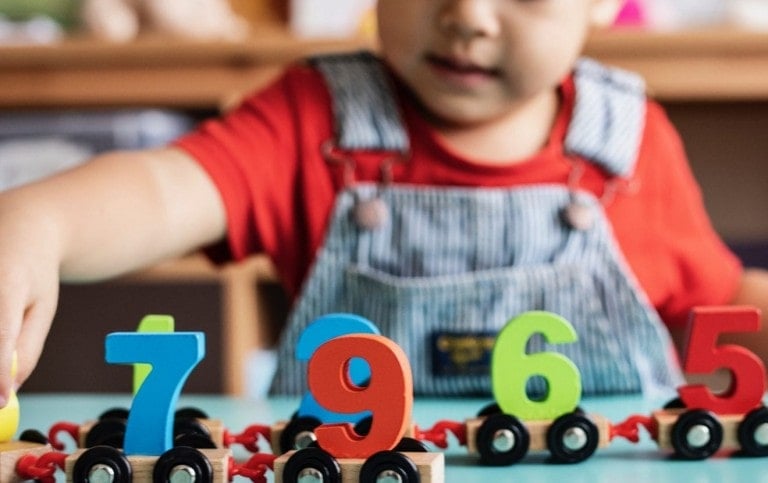For several reasons, attending preschool can be integral to your child’s development. First, regardless of whether your child attends preschool as part of their childcare facility or goes to a traditional preschool for two to four hours per day, they will learn skills that will give them strong building blocks for their future learning.
Research tells us that a child’s foundation in learning depends on the quality of the relationships with the people who care for them in the first five years.1 It is a massive step for a three or four-year-old to spend a few hours a day away from mom and dad learning new skills, especially because many of them are challenging to teach at home.
According to the census, 12.7 million (63 percent) of the 20 million children under the age of 5 are enrolled in some regular childcare arrangement in America.2 So quality care and programs must be in place when children’s brains develop at the fastest rate. The time between newborn and age five represents the time in a child’s life when their brain has the most plasticity and can learn the most skills. S,o this is a critical period in early childhood development.
Four Skills Children Learn at a Quality Preschool
Indeed, children can learn their colors, letters, and numbers at home from mom and dad. However, there are skills that children learn at preschool that even the most well-intentioned parents cannot teach at home. This is simply because of the nature of the preschool environment. These “soft skills,” as we sometimes call them, are often the most important skills children come to kindergarten possessing. Let’s examine some of these skills and why they are critical for future learning.
1. Turn-Taking/Relationship Building
Turn-taking is one of those skills that must be learned in the right environment. You can practice turn-taking at home by playing games. But practicing this skill with unfamiliar teachers and friends the same age as your child is a different experience. Children will learn to modulate their emotions as they consider the needs of others. This does not come naturally with interactions with mom and dad and siblings.
Turn-taking is an essential skill for kindergarten. Children need to be able to take turns all day long. This skill requires self-control, respect for others, and delayed gratification. Children must take turns during play while talking, interacting, and waiting for the teacher’s attention. This can only be taught through real-life practice.
Look for a preschool environment where teachers create many healthy interpersonal interactions. Children’s interactions with their early teachers can set the tone for interactions and promote positive attitudes about teachers and school throughout their academic careers.
2. Age-Appropriate Skills
According to the NAEYC, high-quality early education programs utilize evidence-based curriculums that are developmentally, culturally, and socially-emotionally age-appropriate and relevant. Children must be met where they are currently on their developmental spectrum. This helps with later skill-building on previously mastered skills. In addition, quality preschools base their curriculum on early learning standards for each state to ensure that each child is on track to master all kindergarten readiness skills promptly.
3. Resilience
The preschool setting is a great place to learn resilience because of social interactions, opportunities for risk-taking, coping skills, and problem-solving. Having the opportunity to practice all of these skills in a supportive, age-appropriate environment with other same-age peers is important and a key ingredient in early child development.
4. Empathy
The preschool setting is also great for young children to experience many emotions and witness other children experiencing various emotions. This helps to teach social-emotional skills and empathy. A quality preschool must have teachers who discuss and process emotions that children feel and demonstrate during the day. It is also helpful if parents discuss this with their children when they get home. Think about asking your child questions such as:
- “Were any of your friends happy today?”
- “Was anyone sad? Why do you think they were sad? How did you know she was sad?”
- “Did you do anything to cheer her up?”
This starts meaningful discussions about emotions and relationships. It also builds your child’s sense of empathy for others.
Learning happens everywhere. You can undoubtedly teach these skills at home and in other environments to an extent. However, learning these skills may become easier for your child in a quality preschool setting.













